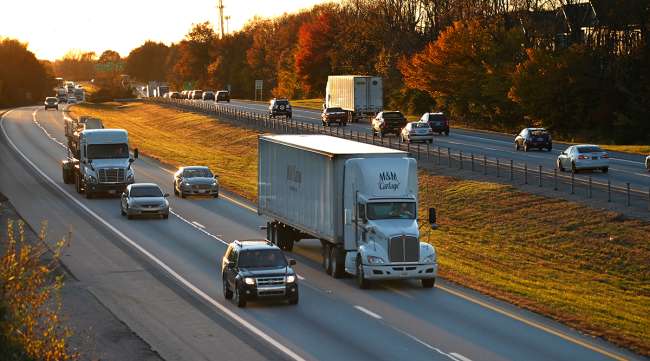Senior Reporter
IG Report Outlines Top Management Challenges for FMCSA

[Stay on top of transportation news: Get TTNews in your inbox.]
A federal oversight report calls on the Federal Motor Carrier Safety Administration to provide more “robust oversight” of states’ compliance with commercial driver license and driver medical exam requirements as a means of keeping highways safer and reducing the number of large truck and bus accidents.
The heightened attention to states’ safety efforts was one of several top “management challenges” facing federal trucking regulators heading into 2021, according to the annual report from the Department of Transportation Inspector General.
The IG in the report said past investigations have uncovered several issues related to CDL issuance, including fraud related to driver medical examinations among both drivers and doctors, public corruption of state employees, CDL third-party testers and so-called “reincarnated” carriers.

“The DOT’s top priority is to ensure the U.S. transportation system is the safest in the world,” said the IG review, dated Oct. 21. “Although the number of fatalities in all motor vehicle traffic crashes on U.S. roadways decreased by 3.3% from 2016 to 2018, fatalities in crashes involving large trucks or buses have increased by 5.8%. To enhance safety, the department faces the ongoing challenge of ensuring compliance with regulations for safety programs nationwide.”
RELATED: NHTSA Forecasts Slight Increase in Truck Crash Fatalities for 2019
In addition to closely monitoring certified medical examiners who conduct physical examinations for drivers, the IG said FMCSA also must address “key safety challenges” such as identifying motor carriers with safety concerns and better prioritizing high-risk carriers for interventions.

Home | Video | Heroes' Photo Gallery
Saluting the men and women of the trucking industry who kept America's essential goods flowing during the coronavirus pandemic.
Heroes: Peter Lacoste | Susan Dawson | James Rogers | Reggie Barrows | Kevin Cooper | Cesar Quintana Moreno
“As we reported in 2019, FMCSA is testing a statistical model to gauge how it prioritizes motor carrier safety interventions, but the agency lacks implementation details for improving transparency and its assessment of carrier safety rankings,” the IG said. “To meet this challenge, FMCSA must take steps to ensure it has the quality data needed to support its assessment of motor carrier safety performance.”
The IG was referring to FMCSA’s challenge to find ways to merge what transportation researchers have called a more precise, but complex, data-driven method — known as the Item Response Theory — which is intended to improve the evaluation of driver and motor carrier safety.
FMCSA has been studying the IRT method for more than two years, but in September missed its deadline for a go or no-go decision on implementation. FMCSA has been working with a National Academy of Sciences standing committee and is said to be finalizing its review of the model and developing options. FMCSA Deputy Administrator Wiley Deck said at a conference in October that an announcement on the IRT model will be made soon.

According to Shelley Dellinger of Cargo Transporters and Alphonso Lewis, ATA’s Road Team Captain and YRC Freight driver, diversity in recruitment methods is essential. Hear a snippet, above, and get the full program by going to RoadSigns.TTNews.com.
In response to the IG’s list of management challenges, DOT said its safety efforts have included hosting FMCSA’s 2020 Trucking Safety Summit virtually Aug. 5 to encourage stakeholders to share ideas on improving trucking safety.
“The meeting brought together motor carriers, drivers, safety technology developers and users, federal and state partners, and safety advocacy groups — as well members of the public to ensure safeguards and protections are thoroughly vetted,” DOT said. “This kind of continued collaborative interaction with the department’s stakeholders is a key to making greater strides in improving transportation safety.”
In addition, DOT said it is actively engaged to ensure the integration of automated vehicle technologies advances safety, mobility and other important goals that will benefit motorists.
Want more news? Listen to today's daily briefing:
Subscribe: Apple Podcasts | Spotify | Amazon Alexa | Google Assistant | More




